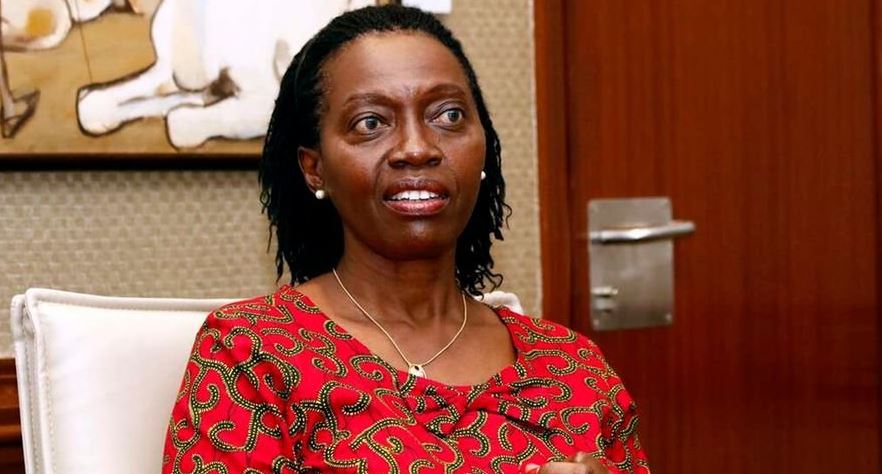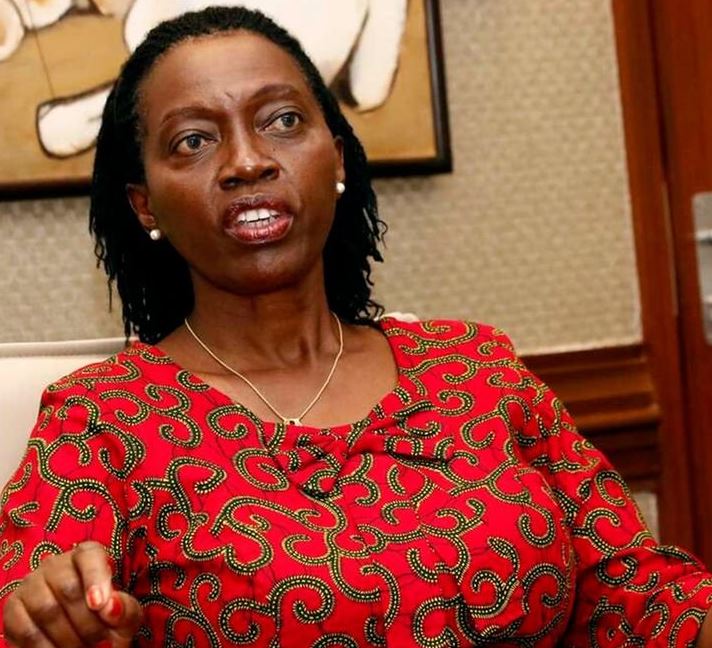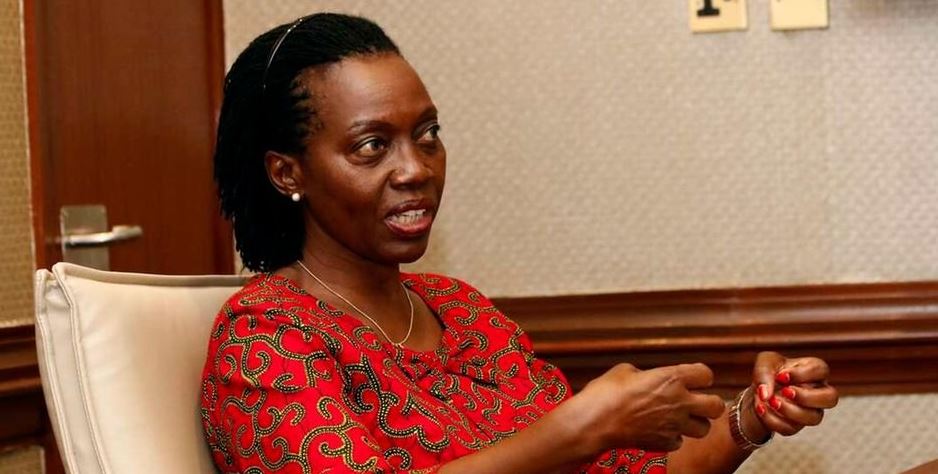 Narc-Kenya party leader Martha Karua sat down for a wide-ranging interview with Nation.africa.
Narc-Kenya party leader Martha Karua sat down for a wide-ranging interview with Nation.africa.
Here are some interview excerpts.
What ails Kenya and how do we cure it?
The problem with Kenya today is all about governance, and governance is about leadership. To be able to achieve the objectives in a government’s manifesto, there has to be good governance. There has to be accountability. We have to ensure that resources, both financial and otherwise, could be human, and are used for the intended purposes.
If we do not do that, then the objectives cannot be met. We have a double problem in this country. That people go to work, not to serve the country but to see how much they can get out of their official roles for self-aggrandisement rather than service to the people.
In my view, what I want to interrogate in any candidate looking for a position and especially those looking for the presidency is how they are going to tackle the elephant in the room, corruption. Not just a mere statement that I will fight corruption. A programme and a plan of action on how to combat corruption, which has been a problem not only before the multi-party era but also after. If it was not for that, we would be very far.
We have good laws in place to tackle corruption but it seems not working. Is it about a gap in enforcement? And what kind of a leader would best slay the dragon?
I think it is a question of commitment and how can we measure commitment in a leader. If Martha Karua is saying I will ensure that you have a better provision of health services, I Would want them to check. Last time Martha Karua had responsibility as Minister for Water. Did she do things that indicate to us that she has the willpower or the commitment to fulfil those pledges? You can measure me against that.
I want to give a shout to the elite, I single them out not because the masses do not have the intelligence or capability of discerning the issues, but they are so stressed with the bread and butter issues in their everyday struggles and they may not get that movement. There is nobody else to do it, just you and I. These are the issues we should be discussing. Handouts cannot be the solution to such complex matters.
What are the dangers of cash handouts in politics?
A candidate however wealthy, however generous with their wealth will not fund the country or a county’s health system or economy but it is only our taxes that will. We do not measure people by their perceived generosity but rather how capable of managing our resources in an effective and accountable manner.
Which position will you be going for in the elections?
I had already indicated that I will go for Kirinyaga Governor and I am already on the ground doing it. But I also lead another national party known as the Narc-Kenya. I am telling Kenyans the dangers of returning to the single-party era. It took such a long time, it took tears, sweat and blood for the country to return to plural politics.
Is Narc-Kenya fielding a presidential candidate?
At the moment we do not have one.
You lead the Mount Kenya Caucus and there are suggestions that you could pair up with Raila or some other presidential aspirant as a possible running mate. Are there any formal or informal talks about such?
As a political party, we are open to conversation with others. That issue has not yet come to me; it has not been put on the table so it is not an issue I can speculate on. But I am grateful to those who have confidence in me, and confidence in my ability and leadership.
If they backed your ticket for president, would you take it up?
That again is speculation, I have always said I have unfinished business with the presidency and I did vie for the presidency and I genuinely, inside of me believe that I have something I can offer Kenyans and that is something I am offering the people of Kirinyaga.
What was working with President Kibaki like?
It was generally a joy up to the time I left. One, President Kibaki gave you work to do and gave you a free hand to do it. Of course, he would be there to assist when needed. But when there was interference, which I could not understand and was disenabling, I left.
Did he try to persuade you to reconsider your resignation?
No, we did not meet. There were people to bring messages but we did not meet. After I resigned, we did not meet at all.
What was so hard to solve that prompted you to leave in this part of the world that people rarely leave power unless they are kicked out?
Up to today, many people still do not understand why I left. I resigned from my appointed job because I felt I was not being of use, but when I had a free hand and I could be effective.
When you say you resigned because you were not of much use to the government, who…
There was obstruction, I do not want to go into details. I will just say that my hands were tied. You cannot give a jembe to work then tie my hands at my back. That’s all.
After the 2007 elections and subsequently the formation of the coalition government, your name featured prominently as poised for the Deputy Prime Minister slot with some suggesting you were more deserving than Uhuru. Did you feel shortchanged by Kibaki?
It was up to the president to appoint; you cannot make a claim on it. It is not your right. I served diligently for one year in the Kibaki government, in his second term. I worked diligently which indicates to you I was totally committed to serving the country in whatever position I had. When you serve the country in whatever position, you have to do it with all your heart. That is who I am. That is why I can vie for president one day and governor the other.
You are said to be one of the ‘7-M Mafia’, which wielded so much power and influence in the Kibaki regime, do you agree with that characterisation?
That is a fabrication. I was not part of the kitchen Cabinet and that is the long and short of it. Even those days, going back to the newspapers, my M (for Martha) was never there. That time before we came into government, if you remember in 1998, Kibaki had given me a shadow Cabinet slot as minister for Culture and Social Services, which I publicly declined.
I became estranged within the party by those around him because they took my decline as arrogance. Even as we were coming into government, I was still somewhat estranged. I was never part of the kitchen Cabinet. And I left the government without ever being part of it and perhaps that saved me from a lot of trouble. People wondered how I was never mentioned anywhere in any of the scandals, it is because I was never part of those things. I just did my job.
On the matter of MoU, Raila fell out with Kibaki immediately after the 2002 polls. What was happening?
I really cannot explain. That can only be explained by the president. But I know it is something that concerned me even before the government was formed. You try to telephone here and there, we have come into Parliament, we are in such a celebratory and euphoric mood, and you do not expect disagreements.
I saw it in the papers, I tried ringing here and there but didn’t get much. Unfortunately, we started the government with those murmurs and doubly the president had that stroke, which meant that time for sitting and solving that took a long, and it took him a while.
It means all those incidents played a role, considering if you start with disagreements, there is a way you can be able to be called together and solve it. Things deteriorated because now it was other players running the show and not the indisposed president. I know there were those murmurs, but because I was not a party to their MoU and what they had made, we felt it ought to have been worked on.
President Kenyatta promised a government appointment to poll loser between you and Anne Waiguru in Kirinyaga gubernatorial poll during the campaigns. Did he keep his word, and if so, why did you decline it?
The president did ask me to be part of his government. That I will disclose. And I declined. I told him frankly that these people had rigged me and I was going to court and I did not wish to join the government. It would be wrong to be rigged and accept a consolation prize. I would have been guilty of normalising rigging.
It is better to be out and battle it. I also felt that I would not fit in the government because you could already see the composition. I had already been in government before and I could see that it would be difficult for me to fit.
How has the current government performed in your view?
Very badly on issues of governance, whether human rights, issues of curbing graft and one very sticky issue the president cannot escape from the ‘Covid billionaires’. It is scandalous, during a pandemic and nobody is acting on it. This actually encourages more and more of such scandals.
In certain areas, it has performed very badly, on infrastructure, we can see it being developed like the expressway, and it is very beautiful and reminds me of other countries. It is a plus, but a negative as well, at what cost? Is that the real cost, or is there a hidden cost?
The cost of infrastructure in this country has gone up, I would say a thousandfold. Our infrastructure is more expensive than those in the developed world. It tells you of the level of corruption. On disobeying court orders, where is the rule of law? You cannot say you adhere to human rights and the most outstanding issue to human rights is the abductions.
Even though the police deny it they are the ones, if they are not then they have the business of telling us who is. If they cannot tell us, we will be justified to conclude it is them. Why are we having the issue of Miguna day in and out? How can you expel your own born national? That disturbs me even now.
How do we achieve the gender rule?
It is easy to fix it without even amending the Constitution. Right now, there are proposals and I hope they will see the light of day. To get political parties, when selecting candidates to run, not nomination, to fulfil the two-thirds gender rule. If that is made mandatory for every county that is Narc-Kenya, if it is Kirinyaga, it must give its list showing adherence to the gender rule etc. If it is the same everywhere else in the country, we would not need to top up. Women have the same opportunity of being elected if given a chance.
You have the moniker of the iron lady, how did it come about?
I do not know how. The Press can actually tell me. But I can tell it is the denialism that there can be excellence in women. If you think of strength, if you think of a strong woman, then it is artificial because a strong man has never been called an iron man. I denote strength, so I become an Iron lady, but a strong man, that is normal. I think if we really remembered our own mothers and the women in our neighbourhoods and the role women play, even just in child-rearing, you would see that women have always been strong.
Even if they may not go to the top of the mountain to declare their strength, there is nothing like the strength of a woman. We need to deconstruct the narrative in the media, in society. The patriarchal narrative and stop the narrative of the denialism of a strong woman, period. For me, no title bothers me, it won’t stop me from going about my business. In my language, we say, no name has ever stopped the development of a child. So, I move on.
Additional excerpts by Nation.Africa.
source https://nairobiwire.com/2021/11/one-on-one-with-martha-karua.html
No comments:
Post a Comment